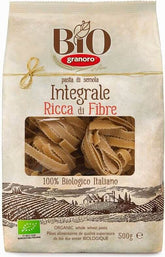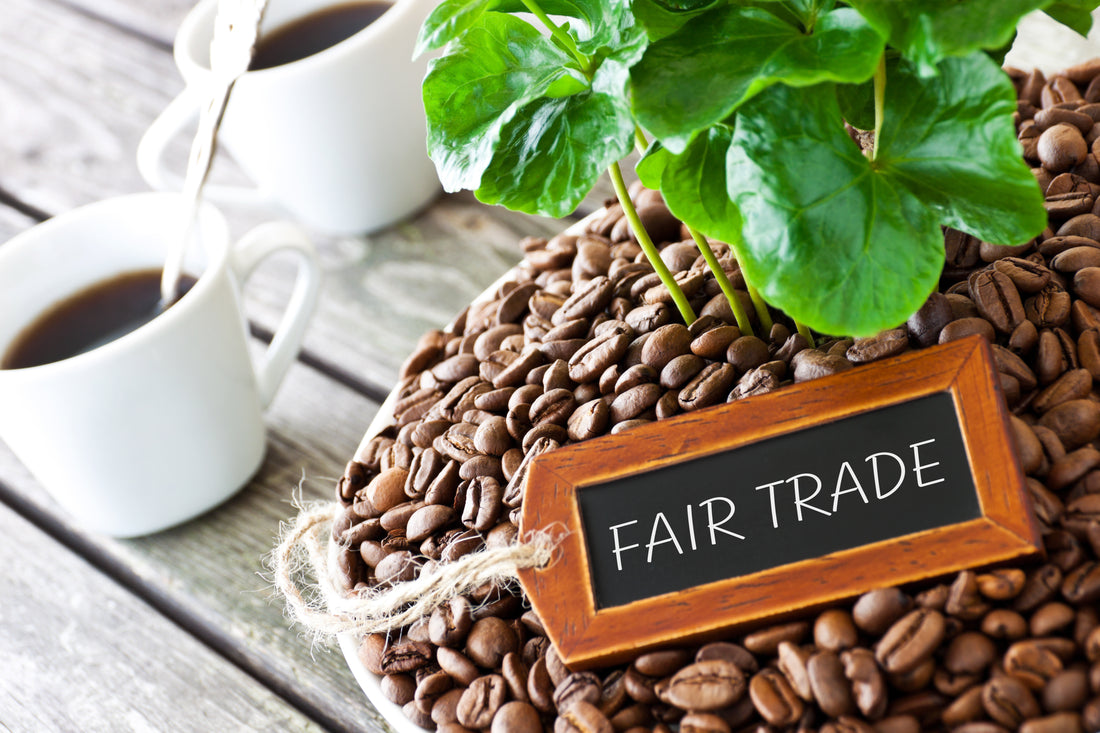Fair trade - why is it worth choosing a product with such a label?
- Why are Fairtrade activities important?
- How come entrepreneurs, workers and farmers from the south get less?
- Why is it worth choosing products with the Fairtrade seal?
- Can we buy Fairtrade certified products in Poland?
Fair Trade is a trading partnership that strives for equality in international trade. By offering better trading conditions and protecting the rights of marginalized producers and wage workers, it contributes to sustainable development. Fairtrade is one of the fair trade certification systems whose main goal is to improve the situation of agricultural producers in the countries of the so-called South, i.e. Latin America and the Caribbean, Southeast Asia, Oceania and Africa. Fairtrade works for, among others:
- fair working conditions,
- higher purchase prices,
- fair trading conditions for workers and farmers.
Why are Fairtrade activities important?
When we hear the slogan "Fair Trade", we may wonder why conventional trade is not enough and why fair trade is necessary and therefore traditional trade is unfair? This injustice stems from the distribution of the gains made through international exchange. In practice, this means that the profits of residents of the Global South are incomparably lower than the profits of entrepreneurs from the North. This is partly due to poor trading conditions in developing countries and the way the largest companies operate. According to official data from Fairtrade Polska, the average coffee plantation worker earns USD 0.5 per day, which is about USD 100 per year, which is only about PLN 450 per year. From a cup of coffee drunk in a restaurant, the producer receives only 5-25 pennies. Coffee, cocoa or tea plantation workers are therefore unable to support, educate or provide adequate medical care for their own children.
How come entrepreneurs, workers and farmers from the south get less?
Because the prices for agricultural products on the world markets are artificially lowered, companies from the countries of the South benefit less. The reason is the huge subsidies that the governments of the developed countries give to their farmers. For example, North American farmers and European landowners can sell their commodities like sugar more cheaply because they receive nearly double the subsidies from their governments. On the other hand, farmers from Africa occasionally receive subsidies, and the goods offered at prices including production costs are disproportionately more expensive and therefore not competitive. Because plantation owners want to produce as cheaply as possible in order to be competitive, plantation workers earn less. The competition involves contracts with the largest importers looking for the cheapest suppliers.
It often happens that farmers from the countries of the South don't know how much they could actually earn and therefore get less than they could. This is partly due to a lack of information about the market and current prices, which means that they are willing to sell their harvest at the price offered by a local intermediary, who is often the only recipient of the goods can manipulate the purchase price. In addition, the lack of roads and transportation prevents local farmers from shipping their crops to larger trading centers.
Why is it worth choosing products with the Fairtrade seal?
Fair Trade promotes an ethical lifestyle and thanks to people choosing to buy products labeled as Fairtrade, the poverty swathe is reduced and social justice is increased In summary Fair Trade:
-
affects the change in the terms and conditions by:
-
taking into account human rights, contributing to the elimination of:
- slavery,
- forced labour,
- guaranteed job and source of income for people on the fringes of society, who in the countries of the Global South are mainly women and people with disabilities,
- Ensuring fair payment for small producers, who thus have a stable source of income,
- by choosing fair trade products, we can help fight poverty,
- contribute to strengthening small and medium-sized enterprises,
- promoting strong local and national economies,
- taking into account environmental protection and sustainable development through environmentally friendly cultivation methods.
- Influencing the reduction of the problem associated with ongoing climate change thanks to sustainable production.
- by promoting natural farming practices, it helps fertilize depleted soils,
- Promoting recycling and alternative, ecological solutionsa , thereby contributing to the reduction of carbon emissions,
- Encouraging farmers to use organic farming methods.
-
taking into account human rights, contributing to the elimination of:
Fairtrade certified products can we buy in Poland?
We as consumers are a very important part of Fairtrade. By becoming conscious consumers and choosing FAIRTRADE products, we are helping to support farmers, producers and employees in their quest to provide themselves, their families and the wider community with better living, working, education and health care. Fairtrade products will be mainly: coffee , tea , bananas, cocoa and chocolate . As interest in Fairtrade products grows year by year, today there is also:
- fresh vegetables and fruits,
- dried fruits,
- peanuts,
- Coconut milk ,
- Juices and other beverages,
- grain,
- Oils,
- Herbs and spices.
The Fairtrade movement contributes to the implementation of the Sustainable Development Goals and, above all, to the eradication of poverty in all its forms around the world and also:
- empowers women - 1.3 billion women worldwide live below the poverty line, and about 70% of these are women living in rural areas in developing countries. They are traditionally excluded from high-paying jobs, have limited property rights, limited access to education, and have primary responsibility for raising children. Thanks to the use of Fairtrade standards, women can get advance payments, affordable credit and insurance, and the Fair Trade movement as a whole encourages farmers and producers to organize democratic structures, giving women more opportunities.
- is a weapon in the fight against climate change - increased temperatures are causing coffee plantations to be destroyed by fungal diseases This damage is spreading across Central and South America, causing increasing amounts of damage in the billions. Fairtrade enables farmers to adapt to climate change, for example by providing access to best practices, more resilient crop varieties or expertise. Producers who work with Fairtrade have to comply with certain environmental rules,
- Prevents child labor and exploitation - unfortunately, in many countries child labor is still the norm and not regulated by law, and tackling this phenomenon is an extremely difficult issue. The Fairtrade standard is the prohibition of child labor. Fairtrade actions are directed against the exploitation of the youngest in the workplace and against the root causes of this phenomenon, namely poverty
- supports the creation of a healthy rural economy - we are witnessing a crisis in rural communities in the countries of the South, where millions of young people are migrating from the countryside to the cities and abroad in search of work and better wages. If young people don't want to work, the land becomes increasingly barren, unsuitable for further cultivation. This contributes to deepening the backwardness of farms
- Fairtrade - products have an ethical origin and are subject to strict controls. Producers are obliged to comply with national and international regulations on the use of fertilizers and pesticides.
When shopping, it is worth using at least part of the budget for Fairtrade products. By choosing them, we contribute to reducing poverty and the negative impact of human activities. Fair trade ensures small producers fair prices and pay, offers people on the fringes of society, i.e. in the countries of the South above all women and people with disabilities, a source of income, eliminates forced child labor. These are just a few of many very important reasons why it is worth choosing products with the Fairtrade seal .
.


















Leave a comment
Please note that comments must be approved before publication.